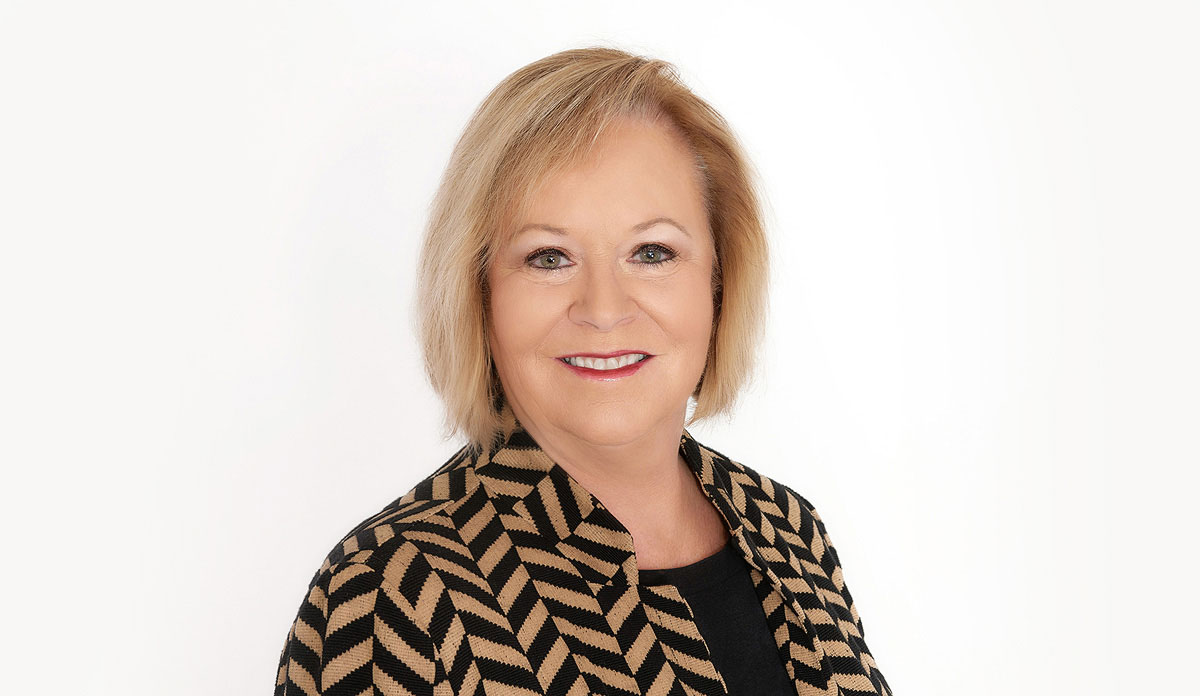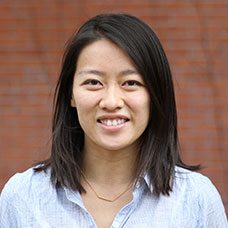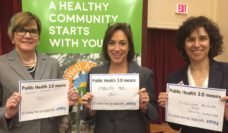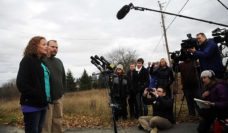PHP sat down with Cheryl Sbarra to talk about her career in public health law and specifically her interest in tobacco control. Her journey started with a part-time position in 1994 drafting bylaws on tobacco sales and second-hand smoke. She’s tussled with the tobacco industry over the ensuing decades over a variety of tobacco control issues. The Massachusetts Tobacco Control Program (MTCP) was formed in 1992 with the goal of reducing smoking in the state. Ultimately, it took the MTCP more than a decade to finally pass a statewide ban on smoking in workplace, which includes restaurants and bars, with overwhelming support from the State Legislature and then Governor Mitt Romney. Massachusetts was the sixth state to pass such a ban. Ms. Sbarra’s advocacy efforts were crucial to the passage of this legislation.
Ms. Sbarra is now the primary legal resource for local health boards throughout Massachusetts and still works on tobacco control regulations.
On her early efforts with tobacco control in Massachusetts
I came on board really pretty soon after the [MTCP] program was formed and what the Department of Public Health did was to grant money to municipalities that promised to work on tobacco control issues. So, the first issue was youth access. We helped take the state law that prohibited sales to minors and turn it into a local board of health regulation or town bylaw or city ordinance so that it could be enforced. We had a law on the books but the police were the enforcing agency and they didn’t do any enforcing.
We started with a no-brainer. The second-hand smoke stuff got controversial, so we did the youth access stuff first. Once we were able to establish the youth access piece, we were able to go back to the board and say you know, we shouldn’t be smoking in restaurants. And most people intuitively didn’t want to smell secondhand smoke.
On the difficulty in sounding the alarm on secondhand smoke
Science never really catches up to what we do in public health. Take, for example, concussions and kids playing football. You know that the science is eventually going to prove a strong causal connection. But we’re trying to regulate a little bit ahead of that science. Because if we wait until all the science comes in, we’re going to have missed years or decades maybe worth of good public health initiatives. We just can’t wait. And that was what happened with secondhand smoke. We knew and we had a lot of good evidence. We didn’t have the official Surgeon General’s Report when we started doing this work.
You don’t go into a restaurant smell a cigarette, go out and drop dead, so how can you say secondhand smoke causes death and disease? This was the tobacco’s industry’s trap. Instead of looking at restaurants or bars as workplaces, we singled them out as restaurants and bars. If you asked anyone whether they should smoke in your office, even back in the 90s, there were a lot of people who would’ve said no, you shouldn’t smoke in an office. But we let them. It took us ten years to figure out the right approach.
On Operation Bar Hop
There were some pretty nasty meetings. They [the tobacco industry] funneled all their money through the Mass Restaurant Association and other front groups that would follow us into Board of Health meetings and scare people into thinking that their restaurants were going to go bankrupt because the 10% of people who smoked at the time weren’t going to go. We kept hearing this testimony that …they’ll lose all of this business.
One thing we did was called Operation Bar Hop. We actually went around in teams of two, one night in Boston and we counted the number of smokers. We would go to Boston Billiards, we went to different bars in different parts of the city. And one of us would go in and one would record. You would go into a bar and it smelled like smoke and if you looked around there were just two people smoking. We brought that testimony with us to Cambridge and Somerville when they were looking to become smoke-free.
Photo courtesy of Cheryl Sbarra.
This year, the Activist Lab presented the Gail Douglas Award to Cheryl Sbarra in recognition of the outstanding work that she has done not only at the Boston University School of Public Health, but also on behalf of Massachusetts Association of Health Boards, whose members contribute to the frontline work of providing the conditions by which people can be healthy.













